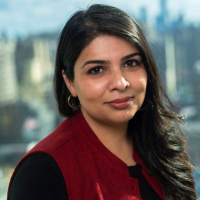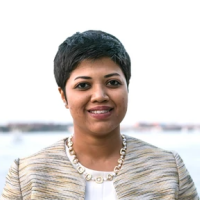Afghan Crucible: The Soviet Invasion and the Making of Modern Afghanistan
While the Soviet invasion of Afghanistan has usually been treated as a key Cold War case study, this perspective alone is insufficient. Instead, Elisabeth Leake argues, the real significance of the war in Afghanistan can only be understood by examining local, national, regional, and international imperatives and the interlinked histories of anti-colonial modernity, postcolonial statehood, the shifting norms of international relations, as well as the Cold War.
Elisabeth Leake is the Lee E. Dirks Chair in Diplomatic History at The Fletcher School, Tufts University. She studied at Yale and the University of Cambridge, and previously held posts at the University of Leeds and Royal Holloway, University of London. She is the author of The Defiant Border: The Afghan-Pakistan Borderlands in the Era of Decolonization (Cambridge University Press) and Afghan Crucible: The Soviet Invasion and the Making of Modern Afghanistan (Oxford University Press).
The Washington History Seminar is co-chaired by Eric Arnesen (George Washington University) and Christian Ostermann (Woodrow Wilson Center) and is organized jointly by the American Historical Association and the Woodrow Wilson Center's History and Public Policy Program. It meets weekly during the academic year. The seminar thanks its anonymous individual donors and institutional partner (the George Washington University History Department) for their continued support.
Speaker

Moderators


Professor of History, The George Washington University. Director, National History Center of the American Historical Association.
Panelists


Hosted By

History and Public Policy Program
A leader in making key foreign policy records accessible and fostering informed scholarship, analysis, and discussion on international affairs, past and present. Read more


Kennan Institute
After more than 50 years as a vital part of the Wilson Center legacy, the Kennan Institute has become an independent think tank. You can find the current website for the Kennan Institute at kennaninstitute.org. Please look for future announcements about partnership activities between the Wilson Center and the Kennan Institute at Wilson Center Press Room. The Kennan Institute is the premier US center for advanced research on Eurasia and the oldest and largest regional program at the Woodrow Wilson International Center for Scholars. The Kennan Institute is committed to improving American understanding of Russia, Ukraine, Central Asia, the South Caucasus, and the surrounding region through research and exchange. Read more


Indo-Pacific Program
The Indo-Pacific Program promotes policy debate and intellectual discussions on US interests in the Asia-Pacific as well as political, economic, security, and social issues relating to the world’s most populous and economically dynamic region. Read more
